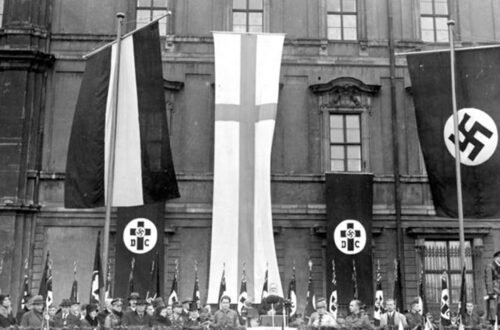
History of Presidential Pardons and Clemencies
How Pardons Work
The plenary power to grant a pardon or a reprieve is granted to the president by Article II, Section 2, Clause 1 of the Constitution; the only limits mentioned in the Constitution are that pardons are limited to federal offenses, and that they cannot affect an impeachment process. The president can issue a full pardon, reversing a criminal conviction as if it never happened. Executive clemency may take several forms, including pardon, conditional pardon, commutation of sentence, conditional commutation of sentence, remission of fine or restitution, respite, reprieve and amnesty.
Since 1789, various offices within the federal government have provided the president with administrative support for the exercise of executive clemency. In 1853, the responsibility of advising the president on pardon petitions was assigned to the attorney general. A presidential order in 1865 formally delegated this responsibility to the Department of Justice.
Since then, various offices have supported this role in managing the clemency process, including the Office of the Pardon Clerk (1865–1870) and the Office of the Attorney in Charge of Pardons (1891–1894). In 1894, the Office of the Pardon Attorney was created. The Office of the Pardon Attorney, part of the United States Department of Justice, assists the president of the United States in his exercise of executive clemency.
The office is headed by the pardon attorney, with the current incumbent being Elizabeth G. Oyer. The pardon attorney has a staff that includes the deputy pardon attorney, an executive officer, four staff attorneys, and clerical staff and paralegals who assist in the review of petitions. It operates under the general oversight of the deputy attorney general and in consultation with the attorney general or their delegate to review and process clemency applications. All requests for executive clemency for federal offenses are directed to the Office of the Pardon Attorney for investigation and review. The pardon attorney prepares the department’s recommendation to the president for final disposition of each application.
It’s important to note that historically, it’s been expected for presidents to rely on the pardon attorney process before making pardons, but they are not required to do so. During Donald Trump’s first term, he circumvented this process in his pardons.
Last 50 Years
PRESIDENT | Total # Pardoned or Granted Clemency | Accomplished Through the Office of the Pardon Attorney | NOTES |
President Joseph R. Biden (2021-2025) | 1736 | Pardoned his son, Hunter Biden, in December 2024 | |
President Donald J. Trump (2017 – 2021) | 237 | Notables include Clint Lorance, Mathew Golsteyn and Michael Behenna. Also Dwayne Michael Carter Jr. and Kodak Black (Bill K. Kapri) for weapon and drug charges. One of his most controversial clemencies was when he pardoned Charles Kushner, his son-in-law’s father, who had been convicted of multiple felonies. | |
President Barack H. Obama (2010 – 2017) | 1927 |
| |
President George W. Bush (2001 – 2009) | 200 |
| |
President William J. Clinton (1993 – 2001) | 459 |
| |
President George H.W. Bush (1989 – 1993) | 77 |
| |
President Ronald W. Reagan (1981 – 1989) | 406 |
| |
President Jimmy E. Carter (1977 – 1981) | 566 | He also issued Proclamation 4483 on January 21, 1977. It granted pardons to those who evaded the draft in the Vietnam War | |
President Gerald R. Ford Jr. (1974 – 1977) | 409 | Pardoned Richard Nixon in September 1974. | |
President Richard M. Nixon (1969 – 1974) | 926 |
|
More than 50 years ago, of note:
Presidents who pardoned 1000 or more:
- Ulysses S. Grant: 1332
- Grover Cleveland: 1107
- Calvin Coolidge: 1545
- Herbert Hoover: 1385
- Franklin D. Roosevelt: 3687
- Harry S. Truman: 2044
- Dwight D. Eisenhower: 1157
- Lyndon B. Johnson: 1187
Issued no pardons:
- William Henry Harrison
- James A. Garfield
Other:
Both during and after the American Civil War, pardons for ex-Confederates were given by US presidents Abraham Lincoln and Andrew Johnson and were usually extended for those who had served in the military above the rank of colonel or civilians who had exercised political power under the Confederate government. The power to pardon offences to the US government was given to the chief executive in the US Constitution under Article II.






